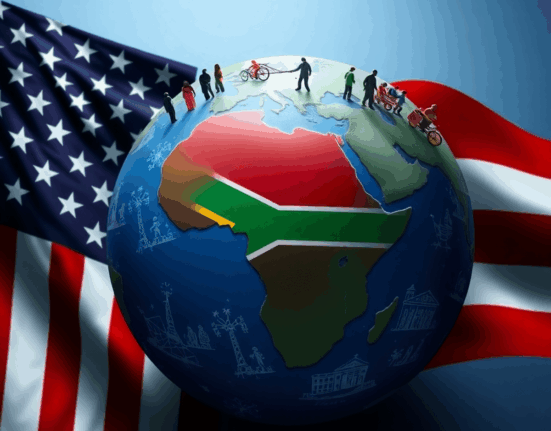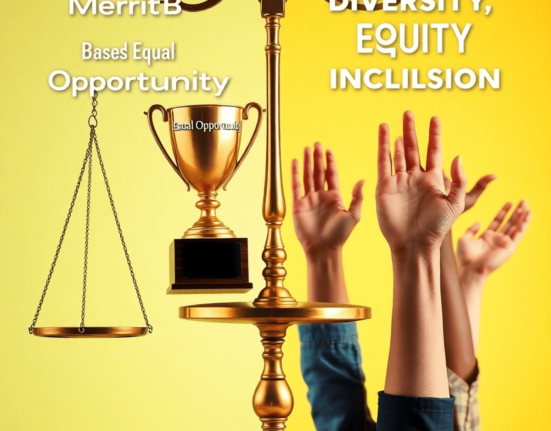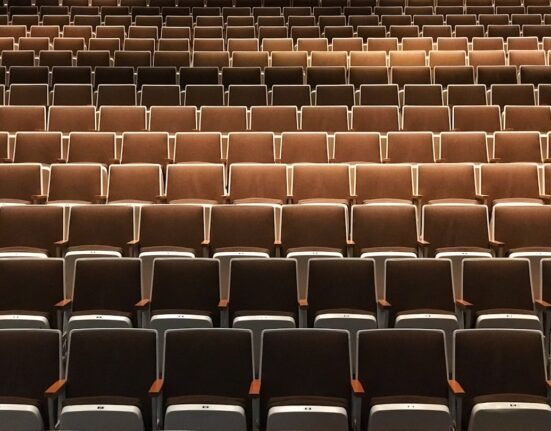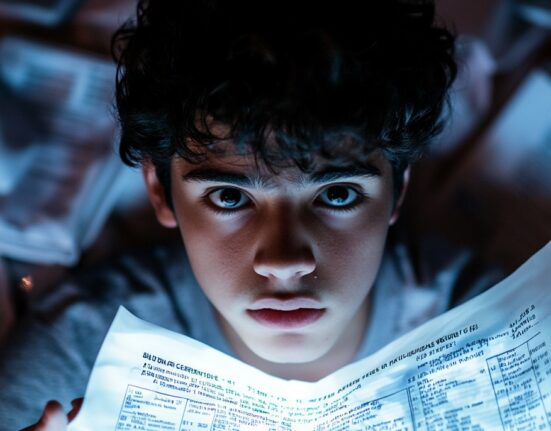In an era where the lines between entertainment and activism are increasingly blurred, pop culture has emerged as a powerful vehicle for political resistance. Artists, musicians, and influencers wield their platforms not just to entertain but to challenge societal norms, advocate for marginalized communities, and inspire change. This intersection of pop culture and political resistance is not merely a trend; it is a reflection of the times we live in, where the voices of the disenfranchised are amplified through music, art, and social media.
As we delve into this dynamic relationship, we will explore how figures like Selena Quintanilla and Bad Bunny have become symbols of resistance, using their artistry to confront issues of identity, gender, and social justice. The impact of pop culture on political discourse cannot be overstated. It serves as a mirror reflecting societal values while simultaneously shaping public opinion.
Artists who engage with political themes often find themselves at the forefront of movements that seek to dismantle systemic inequalities. By examining the legacies of influential figures in music and entertainment, we can better understand how their contributions resonate beyond the stage and screen, fostering a sense of community and empowerment among those who feel unheard. This exploration will highlight the importance of representation, the complexities of cultural identity, and the role of social media in amplifying these critical conversations.
Key Takeaways
- Pop culture and political resistance intersect in powerful ways, shaping and reflecting societal values and movements.
- Selena Quintanilla’s legacy as a Chicana icon continues to inspire and empower Latinx communities, showcasing the importance of representation in pop culture.
- Bad Bunny challenges gender norms and advocates for social justice, using his platform to address important issues and amplify marginalized voices.
- Music serves as a powerful tool for resistance, allowing artists to address social and political issues and spark meaningful conversations.
- The impact of diverse voices in mainstream pop culture cannot be understated, as representation matters in shaping perceptions and empowering underrepresented communities.
Selena Quintanilla: The enduring legacy of a Chicana icon
Cultural Fusion and Musical Innovation
Selena’s music transcended language barriers, blending traditional Mexican sounds with contemporary pop influences, which allowed her to connect with diverse audiences. Her ability to navigate these cultural intersections made her a trailblazer, paving the way for future generations of Latinx artists.
Identity, Empowerment, and Representation
Beyond her musical achievements, Selena’s legacy is deeply intertwined with themes of identity and empowerment. She embraced her Mexican-American heritage at a time when such expressions were often marginalized in mainstream media. Through her fashion choices, performances, and philanthropic efforts, Selena championed the importance of representation for young Latinx individuals.
Lasting Impact and Legacy
Her tragic death in 1995 only solidified her status as an icon; she became a symbol of what could be achieved through hard work and determination. Today, Selena’s influence continues to inspire artists and activists alike, reminding us that cultural representation is not just about visibility but about fostering a sense of belonging and pride.
Bad Bunny: Challenging gender norms and advocating for social justice

Bad Bunny has emerged as one of the most influential voices in contemporary music, using his platform to challenge traditional gender norms and advocate for social justice. His unique blend of reggaeton and Latin trap has captivated audiences worldwide, but it is his willingness to address pressing social issues that sets him apart from his peers. Bad Bunny’s music often tackles themes such as mental health, gender identity, and systemic inequality, resonating with fans who seek authenticity in an industry often dominated by superficiality.
One of the most striking aspects of Bad Bunny’s artistry is his defiance of conventional masculinity. He frequently subverts gender expectations through his fashion choices and lyrical content, promoting a message of self-expression and acceptance.
His commitment to social justice extends beyond his music; he has actively participated in protests against police brutality in Puerto Rico and has used his platform to raise awareness about issues affecting marginalized communities. Bad Bunny exemplifies how artists can leverage their influence to drive meaningful change while inspiring others to do the same.
Music as a tool for resistance: How artists use their platform to address social and political issues
Music has long been recognized as a powerful tool for resistance, serving as both a form of expression and a means of mobilization. Throughout history, artists have harnessed their creativity to address social injustices, challenge oppressive systems, and inspire collective action. From folk songs that fueled civil rights movements to punk anthems that protested war, music has played a pivotal role in shaping political landscapes.
Today, this tradition continues as contemporary artists use their platforms to shine a light on pressing issues such as racial inequality, climate change, and LGBTQ+ rights. The ability of music to evoke emotion and foster connection makes it an ideal medium for activism. Artists like Kendrick Lamar, Janelle Monáe, and Hozier have crafted songs that not only entertain but also provoke thought and encourage listeners to engage with critical social issues.
By weaving narratives that reflect lived experiences, these musicians create spaces for dialogue and understanding. Moreover, collaborations between artists from diverse backgrounds amplify these messages, demonstrating that solidarity across cultures can lead to powerful movements for change. As we witness the evolution of music as a form of resistance, it becomes clear that artists are not just entertainers; they are catalysts for social transformation.
Representation matters: The impact of seeing diverse voices in mainstream pop culture
Representation in pop culture is crucial for fostering inclusivity and challenging stereotypes. When diverse voices are visible in mainstream media, it sends a powerful message that all identities are valid and worthy of celebration. This visibility not only empowers individuals from underrepresented communities but also enriches the cultural landscape by introducing new perspectives and narratives.
The impact of representation extends beyond entertainment; it shapes societal attitudes and influences how people perceive themselves and others. The rise of diverse artists in pop culture has led to significant shifts in audience expectations. Viewers are increasingly demanding authentic portrayals that reflect the complexities of their own experiences.
This demand has prompted creators to prioritize inclusivity in storytelling, resulting in more nuanced characters and plots that resonate with a broader audience. As we see more Latinx artists like Selena Quintanilla and Bad Bunny gaining recognition on global stages, it becomes evident that representation matters not only for those who see themselves reflected but also for society as a whole. By embracing diversity in pop culture, we foster empathy and understanding while dismantling harmful stereotypes that have persisted for far too long.
The conversation surrounding cultural appropriation versus cultural celebration is complex and often contentious within the realm of pop culture. Cultural appropriation occurs when elements of one culture are adopted by another—often without understanding or respect for their significance—leading to commodification and erasure of the original context. In contrast, cultural celebration involves honoring and respecting cultural practices while acknowledging their origins.
Navigating this delicate balance requires sensitivity and awareness from artists and consumers alike. As pop culture continues to evolve, discussions about appropriation have become increasingly prominent. Artists must be mindful of how they engage with cultures outside their own, ensuring that they do so in a way that uplifts rather than exploits marginalized communities.
This responsibility extends beyond individual artists; it calls for industry-wide changes that prioritize ethical practices in music production, fashion design, and other creative endeavors. By fostering an environment where cultural exchange is rooted in respect and collaboration, we can celebrate diversity while honoring the rich histories that shape our collective identities.
The power of social media: How artists leverage their online presence for activism and advocacy

In today’s digital age, social media has transformed the landscape of activism by providing artists with unprecedented access to audiences worldwide. Platforms like Instagram, Twitter, and TikTok allow musicians to share their messages directly with fans while fostering real-time engagement around social issues. This immediacy empowers artists to mobilize support for causes they care about while amplifying voices that may otherwise go unheard.
Artists like Bad Bunny have effectively utilized social media to raise awareness about critical issues affecting their communities. By sharing personal stories, promoting charitable initiatives, or participating in online campaigns, they create a sense of urgency around social justice movements. Moreover, social media serves as a space for dialogue where fans can engage with one another and share their perspectives on pressing issues.
This interconnectedness fosters a sense of community among individuals who may feel isolated in their struggles for equity and justice. As we continue to witness the power of social media in shaping activism within pop culture, it becomes clear that these platforms are not just tools for self-promotion; they are vital instruments for advocacy.
The ongoing evolution of pop culture as a force for political resistance
As we reflect on the intersection of pop culture and political resistance, it is evident that this dynamic relationship will continue to evolve in response to societal changes. Artists like Selena Quintanilla and Bad Bunny exemplify how music can serve as both a form of expression and a catalyst for social change. Their legacies remind us that representation matters; when diverse voices are amplified in mainstream media, they challenge stereotypes while fostering empathy among audiences.
The complexities surrounding cultural appropriation versus celebration highlight the need for ongoing dialogue about identity within pop culture. As artists navigate these challenges, they must remain committed to ethical practices that honor the cultures they engage with while advocating for social justice through their work. Furthermore, the power of social media cannot be underestimated; it provides artists with tools to connect with fans while mobilizing support for important causes.
Ultimately, the ongoing evolution of pop culture as a force for political resistance underscores its potential to inspire change on both individual and collective levels. By embracing diversity in all its forms—whether through music, art, or storytelling—we can create a more inclusive society where every voice is heard and valued. As we move forward into an uncertain future, let us continue to champion those who use their platforms for good while recognizing the profound impact that pop culture can have on shaping our world for the better.
FAQs
What is the relationship between pop culture and political resistance?
Pop culture has often been used as a tool for political resistance, as it has the power to reach and influence a wide audience. Artists and entertainers have used their platforms to address social and political issues, challenge the status quo, and advocate for change.
How have Latinx artists used pop culture for political resistance?
Latinx artists have used pop culture as a means of political resistance by addressing issues such as immigration, racism, and inequality through their music, art, and public personas. They have also used their platforms to advocate for the rights and representation of marginalized communities.
What role does music play in political resistance within pop culture?
Music has been a powerful tool for political resistance within pop culture, as it has the ability to convey powerful messages and emotions. Artists often use their music to address social and political issues, inspire activism, and unite communities in the pursuit of change.
How does pop culture influence social and political movements?
Pop culture influences social and political movements by shaping public discourse, raising awareness about important issues, and mobilizing individuals to take action. Through various forms of media and entertainment, pop culture can amplify the voices of marginalized communities and challenge dominant narratives.
What are some examples of pop culture being used for political resistance?
Examples of pop culture being used for political resistance include musicians using their platforms to advocate for social justice, actors using their influence to raise awareness about important causes, and artists creating visual and performance art that challenges societal norms and addresses political issues.








